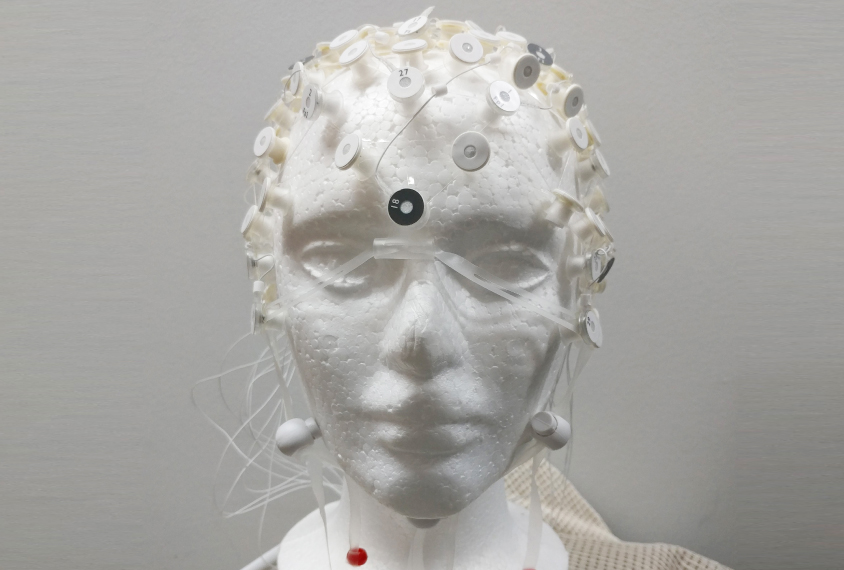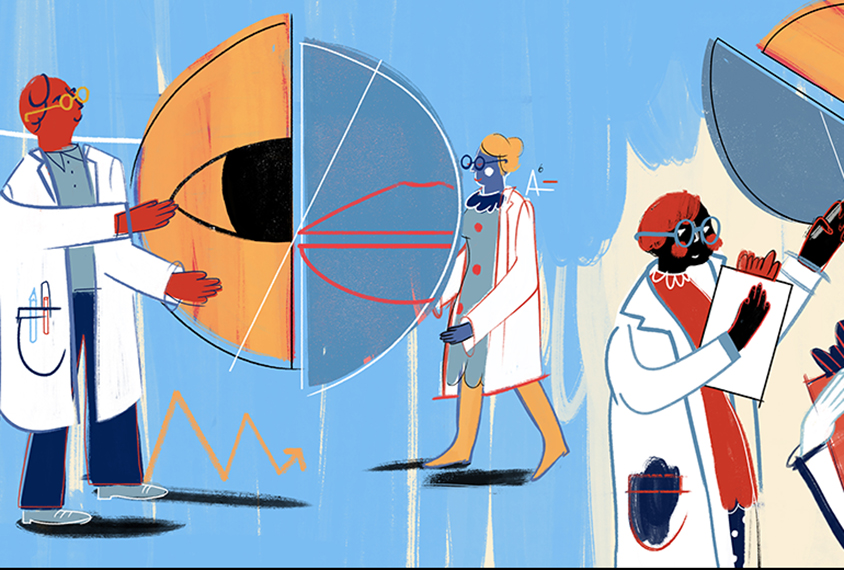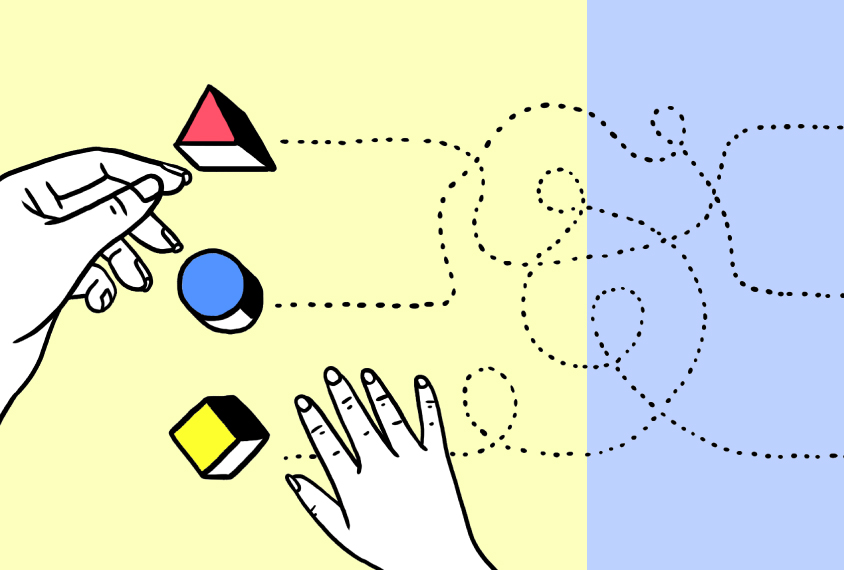Jen Monnier is an intern at Spectrum. She is a journalist in New York City, covering medicine, technology and ecosystems. She’s also a graduate student at New York University’s Science, Health and Environmental Reporting program.

Jen Monnier
From this contributor
Early interventions, explained
The accepted wisdom in autism research holds that early intervention offers the best promise for an autistic child’s well-being. But how effective are these therapies?
Multipart device monitors various senses in babies
A new assemblage of tools precisely gauges a baby’s biological response to sights, sounds and tactile stimuli all at once.

Multipart device monitors various senses in babies
New consortium may create projects, funding for autism research
A newly formed group of leaders from the U.S. National Institutes of Health (NIH) is poised to generate funding opportunities for child health research, including autism science.

New consortium may create projects, funding for autism research
Glowing capsule illuminates problems in gut
An ingestible electronic capsule enables researchers to instantaneously detect molecules associated with gastrointestinal issues.
Explore more from The Transmitter
Shifting neural code powers speech comprehension
Dynamic coding helps explain how the brain processes multiple features of speech—from the smallest units of sounds to full sentences—simultaneously.

Shifting neural code powers speech comprehension
Dynamic coding helps explain how the brain processes multiple features of speech—from the smallest units of sounds to full sentences—simultaneously.
Astrocytes orchestrate oxytocin’s social effects in mice
The cells amplify oxytocin—and may be responsible for sex differences in social behavior, two preprints find.

Astrocytes orchestrate oxytocin’s social effects in mice
The cells amplify oxytocin—and may be responsible for sex differences in social behavior, two preprints find.
Neuro’s ark: Spying on the secret sensory world of ticks
Carola Städele, a self-proclaimed “tick magnet,” studies the arachnids’ sensory neurobiology—in other words, how these tiny parasites zero in on their next meal.

Neuro’s ark: Spying on the secret sensory world of ticks
Carola Städele, a self-proclaimed “tick magnet,” studies the arachnids’ sensory neurobiology—in other words, how these tiny parasites zero in on their next meal.

